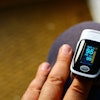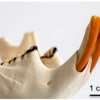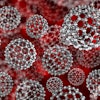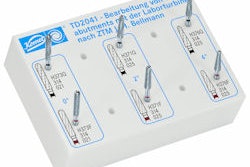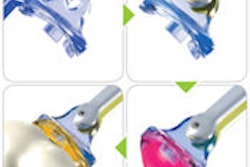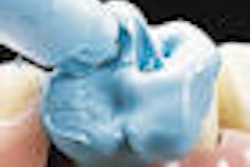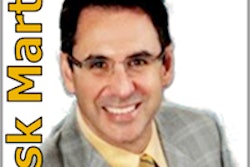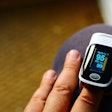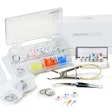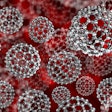
BOSTON - Straumann launched a unique implant material for the North American market at the American Academy of Periodontology (AAP) meeting on Monday, saying the substance could increase the public's acceptance of implant dentistry.
— Franz Maier, global head of sales,
Straumann
The material, called Roxolid, is an alloy of titanium and zirconium that is 50% stronger than titanium and bonds to bone better than other titanium alloys, according to the company.
With Roxolid, the pool of patients who are candidates for tooth implants could expand greatly, Franz Maier, Straumann's global head of sales, told DrBicuspid.com. That's because the new material will allow dentists to place implants in narrower spaces and in people with thin jawbones. Titanium implants often break if they are made too thin or narrow.
"This offers cost advantages, time advantages, and less painful procedures," Maier said.
The smaller implants, which are 3.3 mm in diameter, can be placed in patients more often without augmenting bone structure in the mouth, Maier noted, eliminating the painful, costly process of bone transplants. The Roxolid implants also work better with the company's popular SLActive surface, he said, which has cut the amount of time it takes for bone integration in half, with early bonding three to four weeks.
Roxolid is not indicated for the avoidance of bone augmentation therapy, according to Straumann. Every clinician must use his or her best clinical judgment about whether bone augmentation procedures are needed in conjunction with dental implant placement.
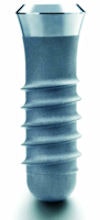 |
|
The Roxolid standard plus tissue level implant, with regular neck. Image courtesy of Straumann. |
Straumann is one of a handful of companies aiming to offer new alternatives to pure titanium and titanium-vanadium alloy implants. Two companies, Oral Iceberg and Nobel Biocare, have developed all-zirconia implants, but have yet to market them in the U.S.
Titanium and zirconium are the only two elements that don't block implants from integrating into bone, according to Straumann.
Straumann won U.S. FDA clearance to sell Roxolid last February, but only offered it in a controlled release program until this week. More than 6,300 of the new implants were distributed through 450 specialists in the controlled program.
The company tested the material on more than 300 patients during two years of clinical trials, finding that the implant survival rate exceeded 99%.
Straumann also introduced its first bone grafting product made from of human bone. Until now, the company only offered synthetic bone for grafting, which is a less popular option among dentists in the U.S. Some patients cannot get implants until they increase their bone structures.
The company partnered with LifeNet Health, one of the largest bio-implant providers in the U.S., to produce the material, called Allograft. LifeNet has sold more than 2 million bone grafting products made from humans since 1995 without any recorded infections, Straumann said.
In addition, the company announced that it had received FDA clearance for a new use of Emdogain, which helps promote tissue regeneration. The FDA now allows Emdogain to be used with various bone graft materials.
"The addition of Straumann Allograft and the new indication for Emdogain promotes choice and predictability for clinicians," said Martin Dymek, regional head of the company's North America division. "Dentists love it when you can give them a recipe," a complete one-stop shopping solution for all their medical supplies, he added.
With Straumann's new offerings, the company can now offer dentists a wider range of products to suit all their needs, Dymek noted.
Copyright © 2009 DrBicuspid.com
